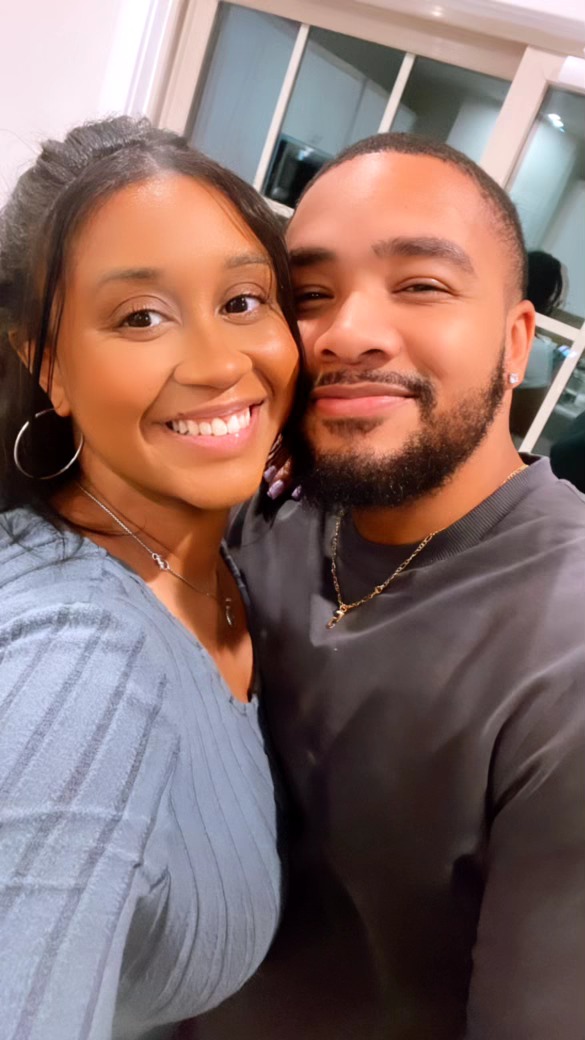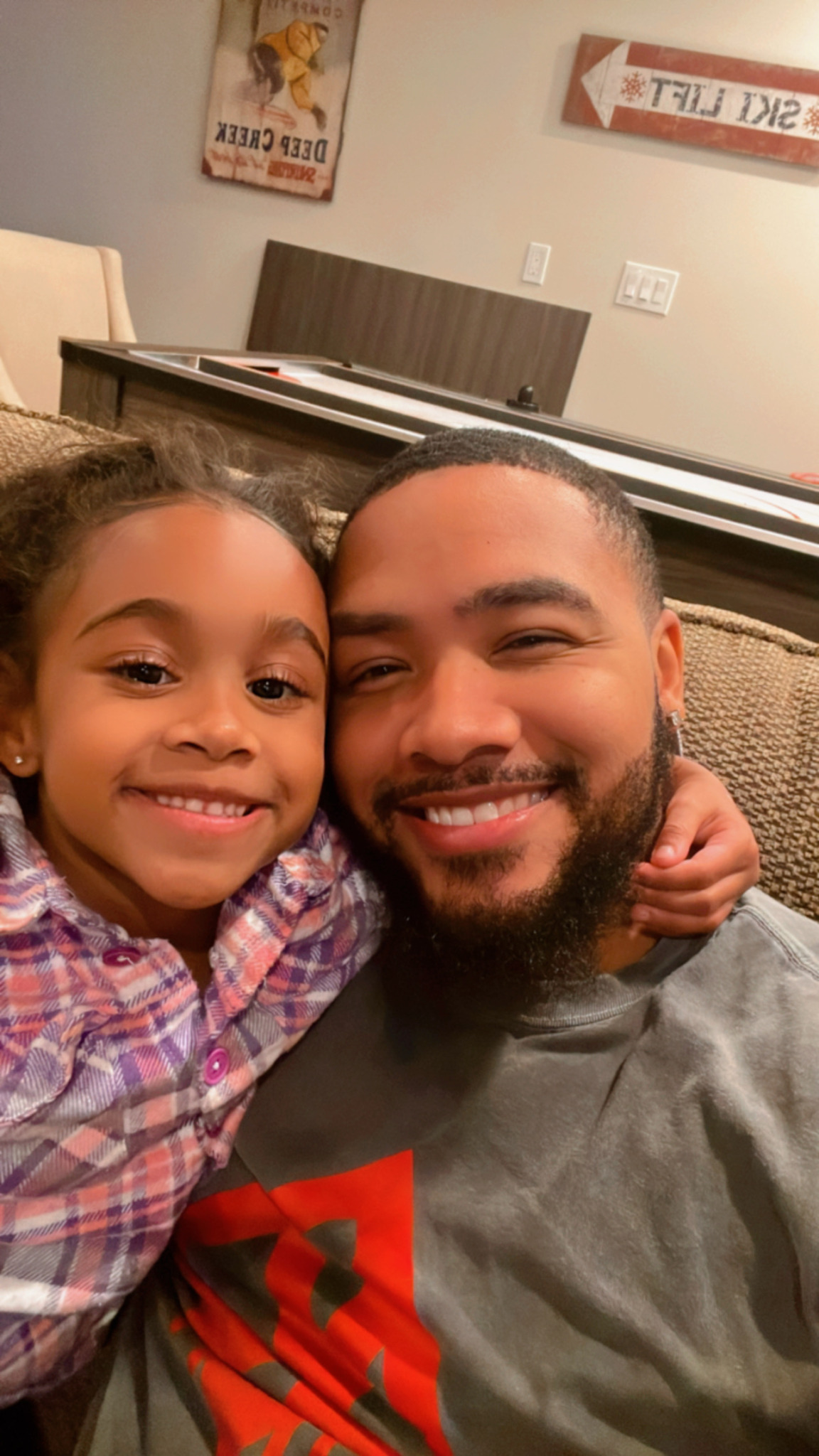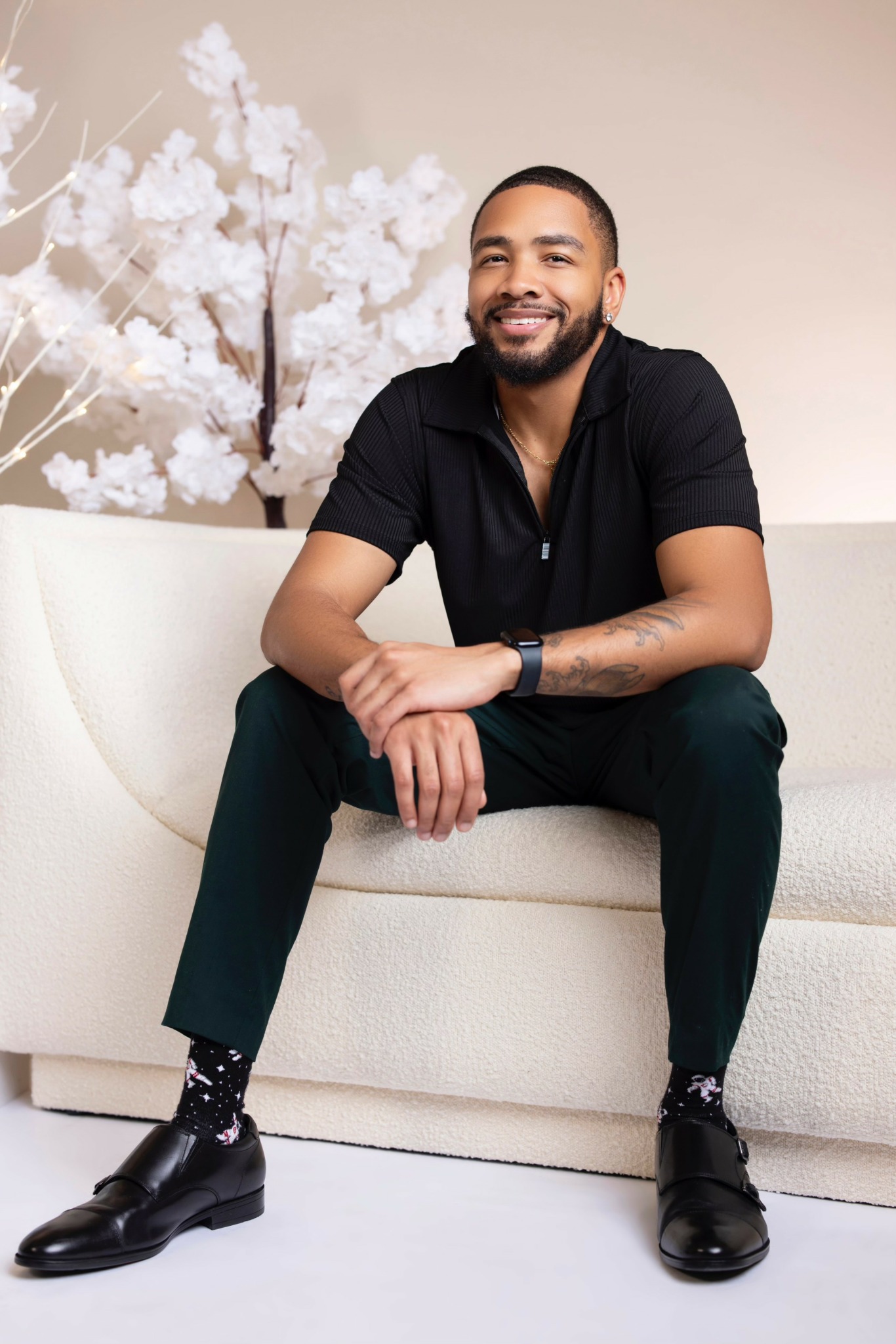We were lucky to catch up with Michael Barnette recently and have shared our conversation below.
Michael, appreciate you joining us today. Can you share a story with us from back when you were an intern or apprentice? Maybe it’s a story that illustrates an important lesson you learned or maybe it’s a just a story that makes you laugh (or cry)?
Throughout Graduate school, I was told to function as a robot in sessions with clients and not show much emotion. I continued these teachings when I began my internship and practicum program, and was having difficulty connecting with my clients and building an authentic rapport. This went on for a few weeks until one day, I was having a group supervision session with some colleagues, and our shared supervisor asked the group if it was okay to cry in a session with a client. Being the youngest person in the group, I was so eager to answer the question that my hand shot up immediately. I answered, ” Absolutely not, you should be able to control your emotions and focus on what the client needs during the session”. I remember being so sure of myself because of how often it was told during Grad school. A few moments of silence went by before another group member answered the question by saying, “It’s okay to cry or show any other emotion while in session with your client because it shows them that you have emotions, and it may even help with allowing the client to express their emotions as well”.
My supervisor was able to confirm my colleague’s opinion and continued to share, “Empathy is a huge part of being a therapist and there will be times when we will experience holding space for our clients while they are going through a difficult emotional experience and that by showing emotions in sessions to our clients will not shift the clients perspective of who you are as a therapist but reassure the client that the therapist is not only physically present with them but emotionally present as well”.
This changed my entire perspective on my approach to therapy and how I can connect with my clients during sessions. I could open up more, show more of my personality, and openly express emotions in sessions with my clients, and I saw the change almost immediately. I realized that not only were my clients becoming more comfortable in session, but so was I as well. As a new therapist, I didn’t notice how much I was doing myself and my clients a disservice by not being authentically myself in every space that I was in. Realizing that experiencing emotions and practicing empathy can be valuable in the therapeutic relationship with a client.

As always, we appreciate you sharing your insights and we’ve got a few more questions for you, but before we get to all of that can you take a minute to introduce yourself and give our readers some of your back background and context?
As I was growing up, I realized very early on that there wasn’t much space for me to express my emotions within my family. There were frequent disagreements and arguments within my household that always left me with a lingering question… How could my family communicate more healthily? That question continued to linger until I began an AP psychology course during my junior year of high school. That is when I was able to have a brief introduction into psychology and, more specifically, I gained more information about trauma, expressing your emotions, and how different parts of the human brain function.
I am passionate about helping individuals and couples to reconnect with themselves or their partners. Providing a non-judgmental, compassionate, empathetic, and safe space is the most important aspect of my work with all of my clients. My work with couples includes assisting them in understanding their current issues and creating a new healthier dynamic.
I am most proud of the healthy rapport that I have with my clients while assisting them in navigating difficulties within their lives. I would like my clients to know that I’m aware that starting therapy can be a scary yet rewarding process. I acknowledge that it can be an uncomfortable experience sharing your deep thoughts and expressing your feelings to a stranger, which is why I pride myself on creating a safe space and making sure my clients are as comfortable as possible. I pride myself on open communication, establishing a healthy rapport, and playing the role of a ” process consultant” by consulting my client on different skills and techniques to assist them in navigating through any process or transition that they need assistance with. I would like for my potential clients to know about my work is that, although navigating challenging emotions, life transitions, and previous traumas can be extremely challenging to cope with, do not fear exploring those emotions or altering your current perspective because that is when the start of your healing process can truly begin.

We’d love to hear a story of resilience from your journey.
The first story of resilience in my journey to becoming a therapist began when I failed the National Counseling Exam (NCE) after graduating from my master’s program. After studying for months while completing my final classes, working full-time, and being a full-time father, failing the NCE by just 8 points was one of the most disappointing moments of my life. I received my score two weeks before graduation, leaving me to navigate the conflicting emotions of both disappointment and excitement.
Before graduation, the private practice where I completed my internship and practicum offered me a full-time position as a psychotherapist pending my passing of the NCE. Because I hadn’t passed, I found myself stuck in a job with no room for advancement, and stuck with the feeling that my career had to be on hold for the next six months until I could retake the exam.
At that point, I was left with two choices: sit and sulk in my failure or learn from it. After several days of feeling defeated, I picked up my study guides again, took as many practice tests as I could, and analyzed which sections had given me the most trouble. The day after graduation, I applied to retake the exam in November of that same year, making a promise to myself that I would pass the next time…no matter what it took.
After a long six months of quarantine, studying, and fathering (yes, I made that up), test day finally arrived. Two days before the exam, I started experiencing flu-like symptoms—coughing, fatigue, stomach pain, and a head that felt like a hot air balloon. On the morning of the test, my daughter woke up violently ill with chills and was throwing up for most of the morning. My negative thoughts crept in. I questioned whether this career was really for me, whether all these obstacles were signs to give up, and whether I should just reschedule and focus on what mattered most at that moment—caring for my child.
My wife noticed my change in energy, looked me straight in the eyes, and said, “Do what you have to do, and I will make sure Skylar is okay.” With her words echoing in my heart, I opened my laptop, entered the exam portal, and sat frozen at the “Begin Test” button.
Before I clicked, I reminded myself of the decision I had made six months earlier. I thought about the countless hours of studying and sacrifice, and what passing this exam would mean for my career and my family. I had dreamed of owning a private practice since my first AP Psychology class in high school, and this exam was just another stepping stone toward that dream.
After finishing the test, we received our raw scores, but we wouldn’t learn the official passing score until about a month later. That December, I received one of the best early Christmas gifts I could have ever hoped for: I passed my NCE exam by 9 points!
As soon as I got the news, I called my wife and we cried together over FaceTime. I thanked her repeatedly for being an incredible mother and partner throughout the entire process. I told her that I couldn’t have reached this milestone without her unwavering strength and support.
There’s no greater feeling than accomplishing something you worked so hard for. Especially when not a lot of people know whats happening behind the scenes. So when I’m faced with adversity, I go back to those feelings and that drive to remind me that I am resilient and I got this.

Learning and unlearning are both critical parts of growth – can you share a story of a time when you had to unlearn a lesson?
The belief that vulnerability is a sign of weakness.
Like many young men growing up, I constantly heard from my father and other male role models that “men don’t cry” and “we don’t show weakness.” Even as a child, I struggled to fully accept this idea. I often felt sadness and anger, and I even cried after losing basketball games. I was aware that I had emotions, but because of the “man up” mindset, I never learned how to express them…I only got better at hiding them. And if you practice something long enough, no matter what it is, you will improve at it.
By the time I got to college, I thought I had mastered hiding my emotions. But the truth was, I was exhausted mentally and emotionally. From academic struggles to feeling homesick and isolated, I bottled everything up inside. I had been suppressing my emotions for so long that I became a ticking time bomb, ready to explode. For a while, I thought this was normal, just another part of “being a man.
That pattern continued until I started facing a recurring issue in my relationship. My partner often told me that I wasn’t being open or emotionally expressive. In fact, one of the only emotions she had seen me display over the years was the joy I felt when our daughter was born. I didn’t know how to respond to her concerns—I felt lost when it came to emotional expression.
Then I met the man who would later become my mentor, and he taught me a lesson I’ll never forget. Over dinner one night, I opened up about the issues in my relationship and my belief that vulnerability was weakness. Almost immediately, he challenged that belief. He told me that vulnerability is not weakness—it’s strength. It takes a strong person to name their fears and weaknesses and still push forward. Whether you choose to speak your fears or not, they don’t disappear or grow stronger simply because you name them. But sharing them shows a willingness to confront them, and a power in refusing to let those fears consume you.
That conversation changed my entire perspective. I began expressing my emotions, even the uncomfortable ones. I learned to give myself space to feel and validate those emotions. I realized that my emotions DO matter, and expressing them doesn’t make me any less of a man. It makes me more human.
Contact Info:
- Instagram: @IamMichaelBarnette
- Linkedin: https://www.linkedin.com/in/michael-barnette-22759499/






